The Veganuary challenge is in full swing, at Mewburn Ellis, and across the UK more generally. But what do companies need to be conscious of when using terms like vegan and Veganuary?
VEGANUARY itself is a trade mark, used to identify the goods and services of the non-profit organisation Veganuary, which inspires and supports people to “try vegan”.
Veganuary’s trade mark portfolio in the UK ranges from a registration for the logo  filed in 2014 covering only “Provision of a website featuring information, education and advice on living and sustaining a vegan lifestyle which includes a searchable product directory, eating out guide and recipes” (Registration No. UK00003062731), to much broader subsequent filings for VEGANUARY and
filed in 2014 covering only “Provision of a website featuring information, education and advice on living and sustaining a vegan lifestyle which includes a searchable product directory, eating out guide and recipes” (Registration No. UK00003062731), to much broader subsequent filings for VEGANUARY and ![]() in December 2021, May 2022 and November 2022 covering a wide range of goods and services, from digital goods and printed matter, to clothing and, most recently, food and drink products (Registration No. UK00003736785, Registration No. UK00003789001 and Application No. UK00003848003).
in December 2021, May 2022 and November 2022 covering a wide range of goods and services, from digital goods and printed matter, to clothing and, most recently, food and drink products (Registration No. UK00003736785, Registration No. UK00003789001 and Application No. UK00003848003).
Veganuary’s trade mark applications and registrations in the UK and other territories give them rights they can use to try and prevent third party use and registration of VEGANUARY (and similar marks) where there is a likelihood of confusion. In the EU, they are currently opposing an EU trade mark application for Veganuary filed in April 2022 by an individual in Germany.
Companies should therefore be cautious about the manner in which they use any of the VEGANUARY marks and ensure that they are only referring to the organisation Veganuary, or its Veganuary campaign, in an honest and fair manner.
Vegan Trade Marks
With record numbers of people participating in the Veganuary challenge every year, many brands have developed vegan versions of their most popular products. Alongside these come a huge host of new trade marks incorporating the word “vegan”.
Unilever has a UK trade mark registration for the design of its vegan MAGNUM ice cream packaging (Registration No. UK00003452555), whilst McDonald’s has registered McPLANT, the name of its vegan burger (Registration No. UK00003553411).
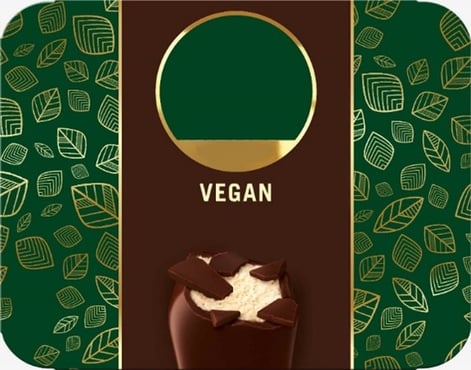
With no official regulation of vegan products, many consumers will be on the look out for a trade mark which certifies vegan credentials.
Perhaps the most widely known mark of this kind in the UK belongs to The Vegan Society. The Vegan Society was established in November 1944 and its founders were responsible for coining the word vegan to refer to “non-dairy vegetarians”. In 1990, they created “the Vegan Trademark” as a method of identifying products which are free from animal ingredients. Companies can apply for a licence to use the trade mark, and this will be granted if the products comply with The Vegan Society’s standards.
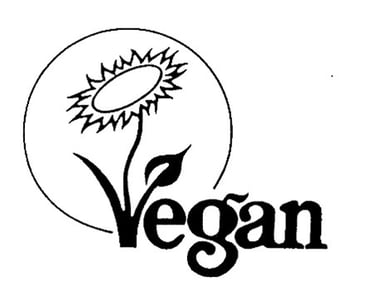
According to The Vegan Society’s website, over 63,000 products worldwide bear their trade mark, including cosmetics, clothing, food, drink and household items.
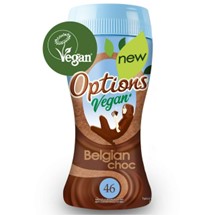
Image from sainsburys.co.uk
Consumers may also be familiar with The Vegetarian Society’s “Vegan Approved” trade mark, created in 2017. As with The Vegan Society’s mark, The Vegetarian Society will licence their Vegan Approved trade mark for use on products which meet their own criteria for vegan products.
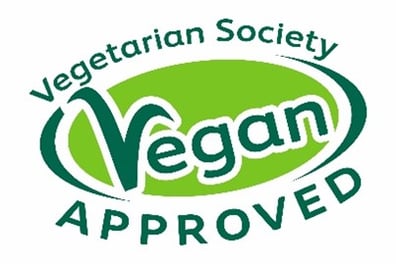
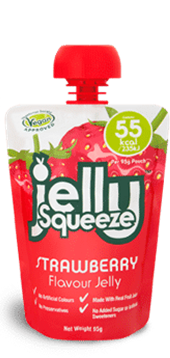
Image from fruitypotfamily.co.uk
Vegan Certification Marks
The marks above are registered as trade marks which are then licenced for use. However, other organisations promoting a vegan lifestyle have registered certification marks instead. Unlike a normal trade mark, which is designed to distinguish the goods and services originating from one trader from those of another, a certification mark is used by authorised users as an indication that goods or services possess a particular characteristic. The proprietor of the mark must not use it themselves; instead they grant authorisation to others who can demonstrate their goods or services meet the requirements for use.
By way of example, V-LABEL INTERNATIONAL, an organisation in Switzerland, owns registrations for its V-LABEL certification mark which it states is currently used on more than 50,000 products.
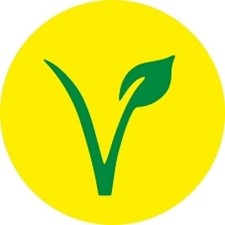
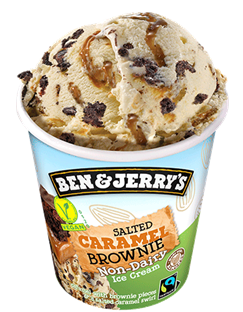
Image from benjerry.co.uk
Launching a new vegan product
In the UK, and many other countries, the word vegan is a generic term and is therefore generally free for use. For example, it should not be a problem to say that you have launched a vegan version of your current product, providing this statement is true. Approval can be sought to use a recognised logo, such as those discussed in this article, to add legitimacy in the eyes of consumers.
Advertising should always be clear about what a product is so as not to mislead consumers. The Advertising Standards Agency has previously been careful to warn companies not to overstate when making claims for non-animal-derived alternatives.
However, in some cases the term may not be used in a completely descriptive way, for example if it will form part of a new logo. In such cases, it may be prudent to conduct trade mark searches prior to adopting the mark, to ensure that use will not infringe the rights of owners of existing vegan marks.
If the logo is distinctive, and likely to be of commercial importance, it may also merit registration.
Rebecca is a Partner and Chartered Trade Mark Attorney at Mewburn Ellis. She handles all aspects of trade mark work, with a particular focus on managing large trade mark portfolios, devising international filing and enforcement strategies, and negotiating settlements in trade mark disputes. Rebecca has extensive experience of trade mark opposition, revocation and invalidity proceedings before the UK Intellectual Property Office (UKIPO), including very complex evidence based cases. Rebecca also has a strong track record in overcoming objections raised to trade mark applications.
Email: rebecca.anderson@mewburn.com


